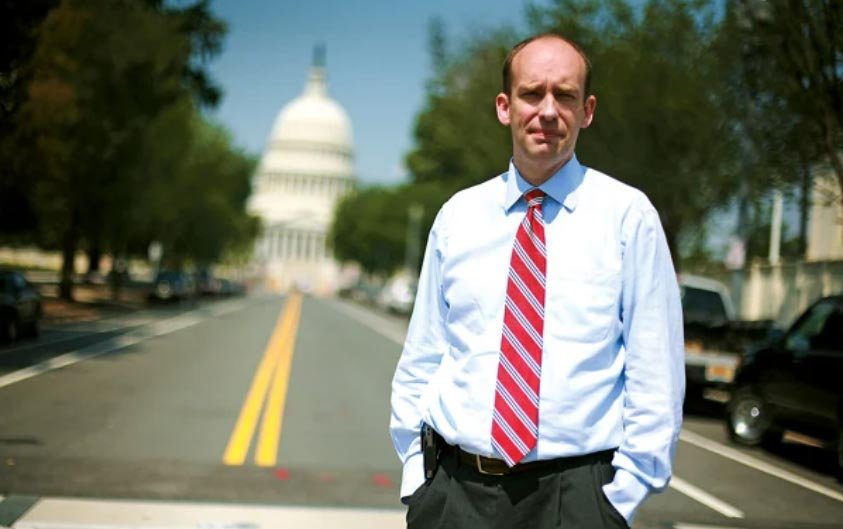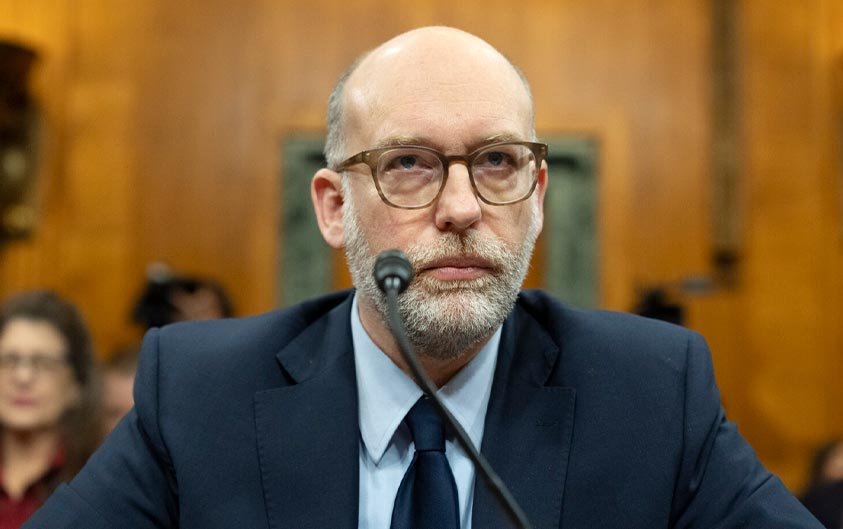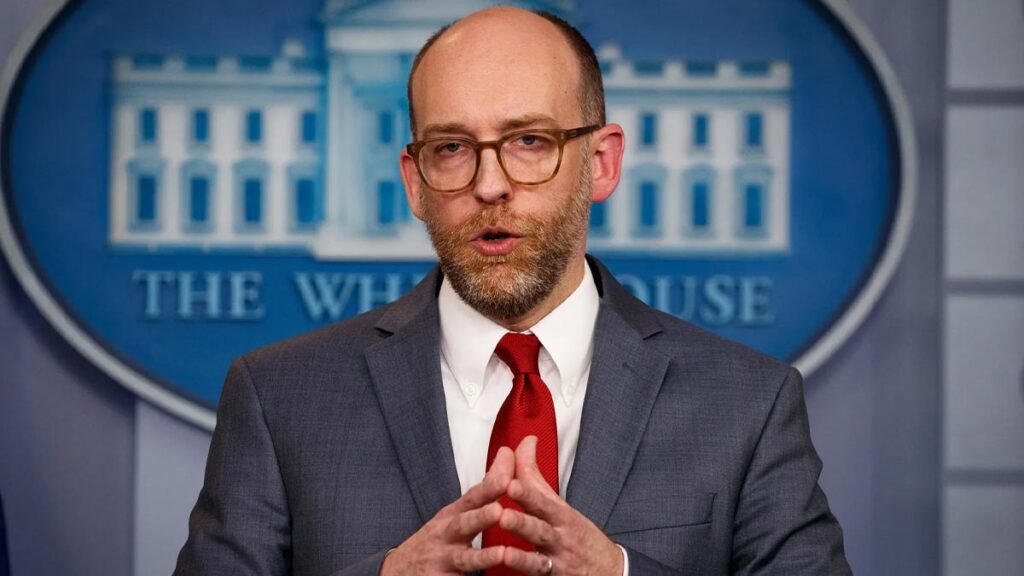On September 29, 2025, the New York Times unveiled a behind-the-scenes portrait of Russell T. Vought, the central figure driving President Donald Trump’s crusade to reforge the U.S. presidency into a more muscular, unchecked institution. Vought—formerly OMB head under Trump’s first term and now reinstalled in 2025—has become a fulcrum in the administration’s effort to consolidate power in the executive branch. While publicly billed as technocratic and uncompromising on fiscal rectitude, Vought’s underlying mission is far more sweeping: to remodel the presidency itself.
Rise and Roots: From Christian Nationalist Think Tank to OMB
Russell Thomas Vought, a longtime conservative operative, built his reputation first in the policy trenches, not electoral campaigns. He co-founded the Center for Renewing America, a Christian nationalist think tank that championed robust executive authority and combative regulatory rollback. In his writings and speeches, Vought argued that the Office of Management and Budget must wield visibility and control over all agencies, effectively binding them tightly to the White House.
Under Trump’s first term, Vought was tapped as acting director of OMB—he later departed and continued influencing conservative policy networks. With Trump’s re-election in 2024, Vought landed back in the OMB seat, confirmed by a party-line Senate vote of 53–47. His return signaling a return to the ideological battle over bureaucracy and presidential authority.
His alignment with Project 2025, a sweeping conservative blueprint to reengineer the federal government, has cemented Vought’s role not just as a budget enforcer, but as the institutional strategist for Trump’s deeper ambitions.
Budget Cuts, “Pocket Rescissions,” and Institutional Upheaval
Under Vought’s leadership, the 2025–2026 budget has become a battleground for power, not just numbers. He is the driving force behind aggressive proposals to slash nondefense spending by $163 billion and redirect resources toward defense, immigration enforcement, and executive prerogatives. Public programs—including foreign aid, health research, public broadcasting, and social services—are under sustained threat.

Perhaps more controversial is the push to adopt a procedural tool known as a “pocket rescission.” This mechanism—used without congressional approval—would cancel funds that had already been appropriated, circumventing the legislative branch and centralizing fiscal control in the executive. Legal scholars and congressional critics warn this move defies the Impoundment Control Act of 1974 and imperils constitutional checks and balances.
Vought has also instructed federal agencies to gird for mass firings under a potential shutdown scenario, abolishing the traditional furlough model in favor of permanent reductions. In agencies deemed “nonessential,” operations would freeze entirely. Programs like education, housing, and infrastructure could collapse overnight. The plan reflects not a stopgap defensive posture, but a deliberate reshaping of government structure and priorities.
A Presidency Remade: Unitary Theory in Practice
What sets Vought’s role apart is that his mission is not limited to budgets—he is fundamentally attempting to pull the levers of government into a single chain of command. His approach reflects a maximalist version of the unitary executive theory, which posits that the president should dominantly control all federal agencies and actions.
Within Project 2025, Vought argues that OMB should serve as the neural center of the White House, tracking and directing every agency’s decisions, staffing, and regulatory moves. He has also championed reactivating Trump’s Schedule F order, which reclassifies tens of thousands of civil servants as political appointees—making them more easily removable. His long-term aim: replace merit-based civil service with a loyalist bureaucracy tethered to the presidency.

Critics warn this approach overrides the constitutional separation of powers and undermines institutional independence. Some have labeled it a path toward authoritarian governance masked in administrative reform. Still, Vought and his allies argue that the existing federal bureaucracy is unaccountable and antithetical to democratic oversight.
Tensions Inside the MAGA Coalition
Despite Vought’s influence, his path is not unchallenged—even within Trump’s ecosystem. Conflicts have reportedly erupted between Vought and Elon Musk (who once led the so-called “Department of Government Efficiency”) over management style and legal risk. Vought reportedly clashed with Musk’s aggressive internal edicts and chaotic approach. Some in the MAGA faction view Musk’s style as unpredictable, while Vought is cast as a steadier, policy-oriented tactician.
Moreover, Republicans in Congress—even many supporters of Trump—are balking at the scale of cuts and legal gambits. Moderates warn of backlash from constituents who rely on social safety nets and public programs, especially as budget battles risk government disruption. The friction reflects a growing divide between radical institutional ambitions and political pragmatism.
The Gamble for Control
As Trump’s second term advances into a showdown with Congress over appropriations and authority, Russell Vought’s gamble is stark: if he succeeds, the presidency will emerge far more powerful than at any time in modern U.S. history. If he overreaches, legal challenges, midterm pushback, or institutional revolt could upset the project.
Vought’s ascension from doctrinal adviser to executive power broker marks a turning point. He is not merely cutting budgets or restructuring agencies—he is recasting the presidency itself, placing all branches of federal decision-making under a narrower, presidential ambit. And in 2025, that ambition is no longer theoretical—it is unfolding in real time.
Whether historians will see Vought as the architect of a stronger executive or the man who nearly broke the constitutional order depends largely on what unfolds over the next months. But one thing is clear: in the boldest push yet for an all-powerful presidency, Russell T. Vought is the man pulling the levers behind the curtain.


